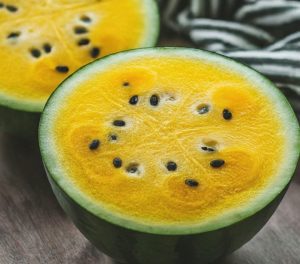
In this article, we will explore seven benefits of consuming radishes during pregnancy, backed by scientific studies and expert opinions. We will delve into the specific nutrients found in radishes that contribute to these benefits and provide tips on how to optimize the consumption of radishes for expecting mothers.
Here are The seven Benefits of eating radishes while pregnant:
1. Rich in Folate for Proper Fetal Development
One of the most significant benefits of radishes during pregnancy is their high folate content. Folate, also known as folic acid, is essential for the proper development of the baby’s neural tube and can help prevent birth defects.
Radishes contain a significant amount of folate, making them an excellent addition to the prenatal diet.
To optimize this benefit, consider consuming radishes in their raw form or lightly cooked to preserve the folate content.
2. Excellent Source of Vitamin C for Immune Support
Radishes are packed with vitamin C, which plays a crucial role in supporting the immune system.
Pregnancy can put extra stress on the immune system, making it important to consume foods that boost immunity.
Vitamin C also aids in collagen production, which is essential for healthy skin, blood vessels, and connective tissues.
Including radishes in your diet can help support your immune system and promote overall well-being during pregnancy.
Also Checkout:
- Benefits of Radish for Liver
- Benefits Of White Radish Leaves
- Benefits of Radishes During Pregnancy
- Benefits of Radish Salad and Recipes
- Skin Benefits of Black Radish
- Benefits Of Black Radish
- Benefits and Uses of Radish Water
- White Radish Soup: Health Benefits and Recipes
- Benefits of Korean Pickled
3. Hydration Benefits
Staying hydrated is vital during pregnancy, and radishes can contribute to your daily water intake. Radishes have a high water content, which helps keep the body hydrated and supports various bodily functions.
Opt for fresh, crisp radishes to maximize their hydration benefits for pregnancy. Additionally, consider incorporating radishes into hydrating salads or pairing them with other water-rich fruits and vegetables for added hydration benefits.
4. Fiber-Rich for Digestive Health
Pregnancy hormones can often lead to constipation and digestive issues. Thankfully, radishes are a good source of dietary fiber, which can help promote regular bowel movements and prevent constipation.
Fiber also aids in maintaining a healthy weight and may reduce the risk of gestational diabetes. To optimize the digestive benefits, include radishes in your diet alongside other high-fiber foods like whole grains, fruits, and vegetables.
5. Antioxidant Properties for Cell Protection
Radishes contain various antioxidants, such as anthocyanins and vitamin C, which help protect cells from damage caused by harmful molecules called free radicals.
During pregnancy, the body undergoes several physiological changes, and consuming foods rich in antioxidants can help combat oxidative stress.
Including radishes in your diet can provide the necessary antioxidants to support overall cell protection and promote a healthy pregnancy.
6. Low in Calories for Weight Management
Maintaining a healthy weight during pregnancy is important for both the mother and the baby.
Radishes are low in calories, making them an excellent choice for those looking to manage their weight.
They provide a satisfying crunch and can be included in various dishes without adding excessive calories.
To optimize weight management benefits of radishes during pregnancy, incorporate radishes into salads, stir-fries, or enjoy them as a crunchy snack.
7. Natural Diuretic Properties for Reducing Swelling
Many pregnant women experience swelling, especially in the hands, feet, and ankles. Radishes have natural diuretic properties, which means they can promote increased urine production and help reduce swelling.
The diuretic effect can help flush out excess fluids and reduce water retention. To optimize this benefit, consider adding radishes to your meals or consuming them as a refreshing juice to alleviate swelling during pregnancy.

Tips for Incorporating Radishes into Meals During Pregnancy:
- Salads: Slice radishes thinly and add them to salads for a peppery crunch.
- Sandwiches: Thinly sliced radishes can add a refreshing flavor to sandwiches.
- Stir-fries: Add sliced radishes to stir-fries for a crisp texture and mild heat.
- Soups: Use radishes to add flavor and texture to soups.
- Roasted vegetables: Roast radishes with other root vegetables, such as carrots and parsnips.
- Dips: Use radishes to make a spicy dip by blending them with hummus, yogurt, or sour cream.
- Pickled radishes: Make pickled radishes by slicing them thinly and soaking them in a vinegar solution.
- Radish sprouts: Add radish sprouts to salads, sandwiches, or wraps for a nutritional boost.
Risks of Consuming Radishes During Pregnancy:
Radishes are generally considered safe to consume during pregnancy in moderation. However, some potential side effects or risks to consider include:
- Gas and bloating: Radishes contain raffinose, a type of carbohydrate that can cause gas and bloating in some people.
- Heartburn: Radishes can have a slightly acidic taste, which may trigger heartburn in some pregnant women.
- Allergic reactions: Radishes are related to other cruciferous vegetables, such as broccoli and cauliflower, and some people may experience allergic reactions to these vegetables.
- Excessive consumption: Consuming large amounts of radishes may increase the risk of vitamin C deficiency, as radishes contain an enzyme that can break down vitamin C.
It’s important to note that these potential side effects or risks are generally associated with excessive consumption of radishes. Consuming radishes in moderation as part of a balanced diet is unlikely to cause any problems. However, if you experience any adverse effects after eating radishes, it’s best to consult with your healthcare provider.
Radish Nutrition That Benefits Pregnancy
Radishes are packed with essential nutrients that contribute to their benefits during pregnancy. Here are some of the key nutrients found in radishes:
- Folate: Radishes are an excellent source of folate, also known as folic acid. Folate is crucial for proper fetal development, particularly in the early stages of pregnancy. It plays a vital role in the formation of the baby’s neural tube, which develops into the brain and spinal cord. Consuming an adequate amount of folate during pregnancy can help prevent neural tube defects and promote healthy growth. A cup of sliced radishes provides approximately 14% of the recommended daily intake of folate for pregnant women.
- Vitamin C: Radishes are rich in vitamin C, an important nutrient that supports the immune system and aids in the absorption of iron. During pregnancy, the body’s immune system can be more vulnerable, so consuming foods high in vitamin C, like radishes, can help strengthen immunity. Vitamin C is also necessary for the production of collagen, a protein that is essential for the development of the baby’s skin, blood vessels, and connective tissues.
- Potassium: Radishes are a good source of potassium, an essential mineral that helps maintain proper fluid balance in the body. During pregnancy, maintaining fluid balance is crucial for preventing dehydration and supporting the functioning of cells, tissues, and organs. Adequate potassium intake can also help regulate blood pressure and reduce the risk of developing pregnancy-induced hypertension.
- Fiber: Radishes are a fiber-rich food, which can be beneficial for pregnant women. Fiber helps promote healthy digestion and prevent constipation, a common issue during pregnancy. It adds bulk to the stool, making it easier to pass, and can alleviate discomfort. Additionally, a high-fiber diet may reduce the risk of gestational diabetes and help maintain a healthy weight during pregnancy.
- Antioxidants: Radishes contain various antioxidants, including anthocyanins and vitamin C. Antioxidants help protect cells from damage caused by free radicals, which are unstable molecules that can harm cells and contribute to inflammation and oxidative stress. During pregnancy, the body undergoes significant physiological changes, and consuming foods rich in antioxidants, like radishes, can help support overall cell protection and reduce the risk of certain pregnancy complications.
These nutrients found in radishes make them a valuable addition to a pregnant woman’s diet. However, it’s important to note that radishes should be consumed as part of a balanced and varied diet. As with any dietary changes during pregnancy, it is always recommended to consult with a healthcare provider or a registered dietitian to ensure that radishes fit well into individual nutritional needs.
More Like This:
- Sweet Potato Chips: Benefits, Side Effects, & Recipes
- Health Benefits of Zucchini
- Benefits of Boiled Mango Leaves
- Chewing Mango Leaves: Benefits, Risks, and More
- 10 Health Benefits Of Mango and Guava Leaves
- Mango Leaves Water: Nutrition, Benefits, Side Effects
- Benefits of Mango Leaves for Face, Skin, and Hair
Final Thoughts:
Including radishes in your pregnancy diet offers several benefits, ranging from supporting proper fetal development to promoting immune health and aiding in digestion. The rich nutrient profile of radishes, including folate, vitamin C, and antioxidants, makes them a valuable addition to a healthy prenatal diet.
Remember to consume radishes in their raw or lightly cooked form to maximize their nutritional benefits. As with any dietary changes during pregnancy, it is advisable to consult with your healthcare provider to ensure that radishes fit well into your individual nutritional needs. Embrace the benefits of radishes and enjoy a healthy and nourishing pregnancy journey.
Disclaimer: This article is for informational purposes only and should not replace medical advice. Always consult with your healthcare provider before making any changes to your diet during pregnancy.
Related Posts
Learn more:







































